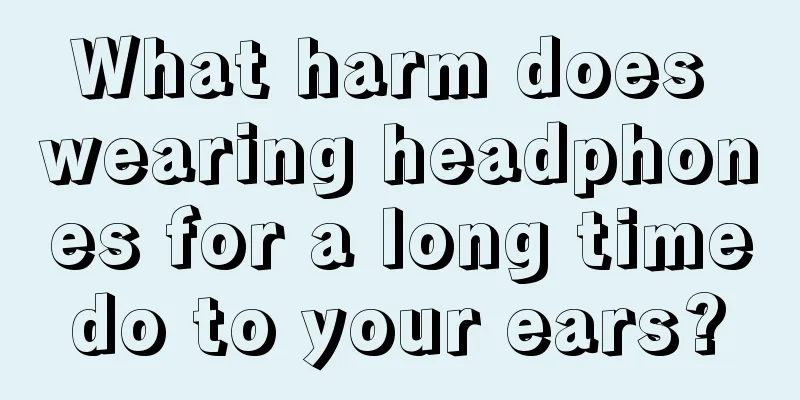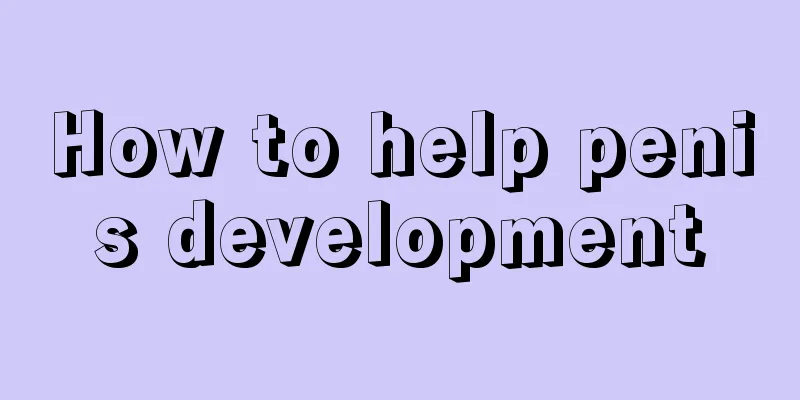What harm does wearing headphones for a long time do to your ears?

|
Nowadays, headphones are an indispensable electronic product. You can wear them not only when studying or listening to music, but also to prevent interference from the outside environment. However, the sound quality of headphones is relatively strong. If the volume is turned up too high, it will damage the eardrum. In addition, unprofessional or irregular selection of headphones may lead to hearing loss. Wearing headphones for a long time will cause damage to the ears and make my ears insensitive. I often cannot hear some tiny sounds clearly. Can headphones damage your hearing? Compared with speakers, most netizens believe that headphones are more likely to damage hearing, and in-ear earplugs are the culprit. Compared with ordinary earplugs, in-ear earplugs cause greater stimulation to the eardrum at the same volume, so they can damage hearing. From the current situation, earplugs have been pushed to the forefront by various medical organizations and hearing rehabilitation institutions, and some countries have even passed legislation to restrict users from using walkmans in specific situations. Headphones have a strong effect on the cochlea In fact, if speakers are used for a long time, it will also cause hearing damage. It’s just that earplugs are used more casually and for longer periods of time. Speakers are not used frequently due to location and time limitations, so earplugs are pushed forward as scapegoats. Stethoscope effect of in-ear earplugs First of all, we need to explain what the "stethoscope effect" is; because the cavity of the in-ear earplug will go deep into the ear canal, and the rubber cover of the earplug will also be close to the ear canal, if the earplug wire rubs against the clothes at this time, the sound will be transmitted to the earplug through the wire and cause annoying noise, which is similar to the situation when the stethoscope used by doctors, so it is called the "stethoscope effect". Wearing it around the ears can help reduce the stethoscope effect The stethoscope effect is common in in-ear earplugs with harder wires. Since the noise seriously affects the listening effect, netizens have tried every possible way to eliminate this hateful noise: wearing it around the ears, clamping the wires with wire clips, etc. Some netizens even proposed the idea of wearing soft-soled shoes. There are all kinds of tricks. It can be seen that the "stethoscope effect" is a major weakness of in-ear earplugs. In-ear earplugs pose a safety hazard As we have mentioned before, in-ear earplugs have excellent sound insulation performance and are more suitable for use in noisy environments, but this can be seen as a double-edged sword. In-ear earplugs have excellent sound insulation effect and can generally offset 20-30db of noise pollution. The listening effect in a noisy environment is much better than ordinary earplugs; but it is also because of this that in-ear earplugs filter out effective information while blocking noise. Wearing headphones while crossing the road is very dangerous On a busy street, the sounds of car horns and pedestrians will be filtered out by the in-ear earplugs, and pedestrians may be in danger if they are not careful. Some manufacturers have realized this situation. Shure proposed the concept of "PTH push-and-listen" earlier, but this only makes it convenient for users to make calls without having to take off their headphones, and the effect of improving safety is not very significant. In addition, the length of the cable after PTH connection is too long, which makes it more troublesome to carry. Buy high-quality headphones When buying headphones, you might want to choose ones that can block out external noise to reduce the chance of increasing the volume of your player due to ambient noise. It is best to choose head-mounted headphones, which are less damaging to hearing than earbuds. Because earbud headphones are directly inserted into the external auditory canal, the sound has no source of escape and is all sent towards the eardrum. The sound is all received by the eardrum, causing greater damage to hearing. Generally speaking, when listening to music of the same volume, the volume of earphones is 7-9 decibels higher than that of headphones. Reduce the time you spend listening to music Generally, the time spent listening to music should not exceed one hour a day. After listening for a while, take off the earphones and gently rub your ears to relax them. Also, do not fall asleep with headphones on, otherwise the ears will continue to receive stimulation after you fall asleep, and the hair cells will be damaged without you realizing it. When listening to MP3, don't listen to it with both ears at the same time. You should alternate between left and right, and don't plug them too tightly. |
<<: How to remedy lack of sleep?
>>: Does skin allergy cause any harm to the body?
Recommend
Tips for fast sleep
Nowadays, people often suffer from insomnia due t...
The functions and effects of tung oil
Many people don't know much about tung oil. I...
What medicine to take for pyloric edema
In fact, it is impossible to detect pyloric edema...
Can I have sex when I am two and a half months pregnant?
When a woman is two and a half months pregnant, s...
What are the symptoms of nicotine poisoning?
Do you know the symptoms of nicotine poisoning? T...
What are the nutritional heart drugs
Heart disease is a common and frequently occurrin...
What causes lymph node acne?
When we have acne on our body, we will feel very ...
Inferior vena varicose vein
Inferior vena varicose vein is a very common dise...
Can I still use expired toothpaste?
When we wake up every morning, we have to wash ou...
Can I still eat yam if it changes color?
There may be two reasons for the discoloration of...
Which is the best authoritative hospital for treating pancreatic cancer?
Pancreatic cancer is a cancer with a very high mo...
How does TCM view the etiology of lung cancer? TCM syndrome differentiation interprets the pathogenic factors of lung cancer
Lung cancer is a type of cancer with a relatively...
What is the most effective way to relieve cough and reduce phlegm? A few tips to help you stop coughing easily
Cough is one of the most common diseases in daily...
What tests are needed for endometrial cancer? These five tests need to be done
Endometrial cancer requires a comprehensive exami...
Is schistosomiasis liver disease contagious?
Schistosomiasis is a disease that poses a serious...









